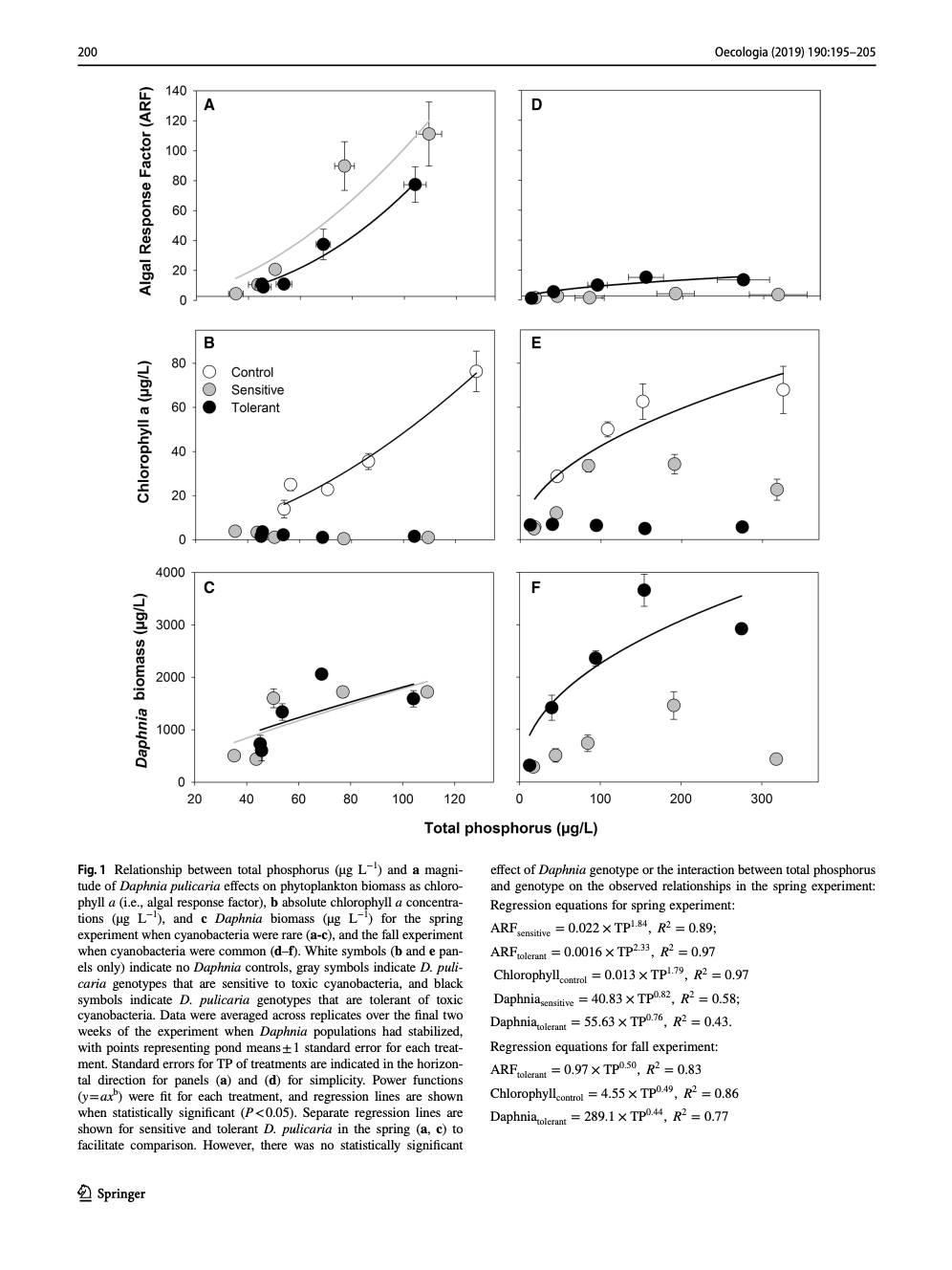
Citation
Chislock, M. F., O. Sarnelle, L. M. Jernigan, V. R. Anderson, A. Abebe, and A. E. Wilson. 2019. Consumer adaptation mediates top-down regulation across a productivity gradient. Oecologia 190:195-205.
Abstract
Humans have artificially enhanced the productivity of terrestrial and aquatic ecosystems on a global scale by increasing nutrient loading. While the consequences of eutrophication are well known (e.g., harmful algal blooms and toxic cyanobacteria), most studies tend to examine short-term responses relative to the time scales of heritable adaptive change. Thus, the potential role of adaptation by organisms in stabilizing the response of ecological systems to such perturbations is largely unknown. We tested the hypothesis that adaptation by a generalist consumer (Daphnia pulicaria) to toxic prey (cyanobacteria) mediates the response of plankton communities to nutrient enrichment. Overall, the strength of Daphnia’s top–down effect on primary producer biomass increased with productivity. However, these effects were contingent on prey traits (e.g., rare vs. common toxic cyanobacteria) and consumer genotype (i.e., tolerant vs sensitive to toxic cyanobacteria). Tolerant Daphnia strongly suppressed toxic cyanobacteria in nutrient-rich ponds, but sensitive Daphnia did not. In contrast, both tolerant and sensitive Daphnia genotypes had comparable effects on producer biomass when toxic cyanobacteria were absent. Our results demonstrate that organismal adaptation is critical for understanding and predicting ecosystem-level consequences of anthropogenic environmental perturbations.